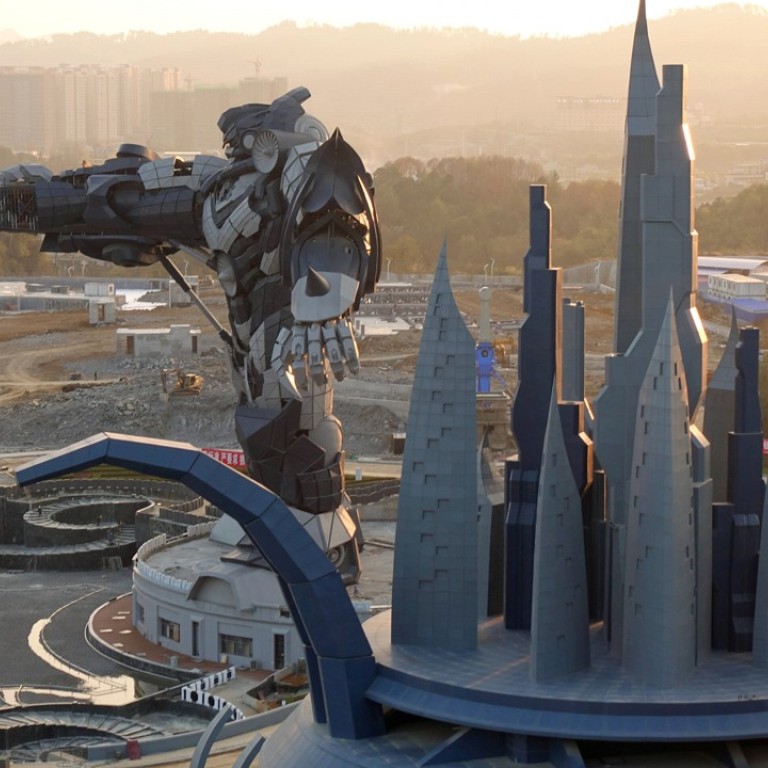
How a poor Chinese province is betting on giant robots and cyberpunk castles to boost incomes
China’s first virtual reality theme park, soon to open in Guizhou province, will offer bungee jumps from a Transformer-like robot, and a studio for producing films, as part of a plan to become a centre of innovative tech
Giant robots and futuristic cyberpunk castles rise out of lush mountain slopes on the outskirts of Guiyang, the capital of one of China’s poorest provinces.
China’s first virtual reality theme park aims to ride a boom in demand for virtual entertainment that is set to propel tenfold growth in the country’s virtual reality market, to hit almost US$8.5 billion by 2020.
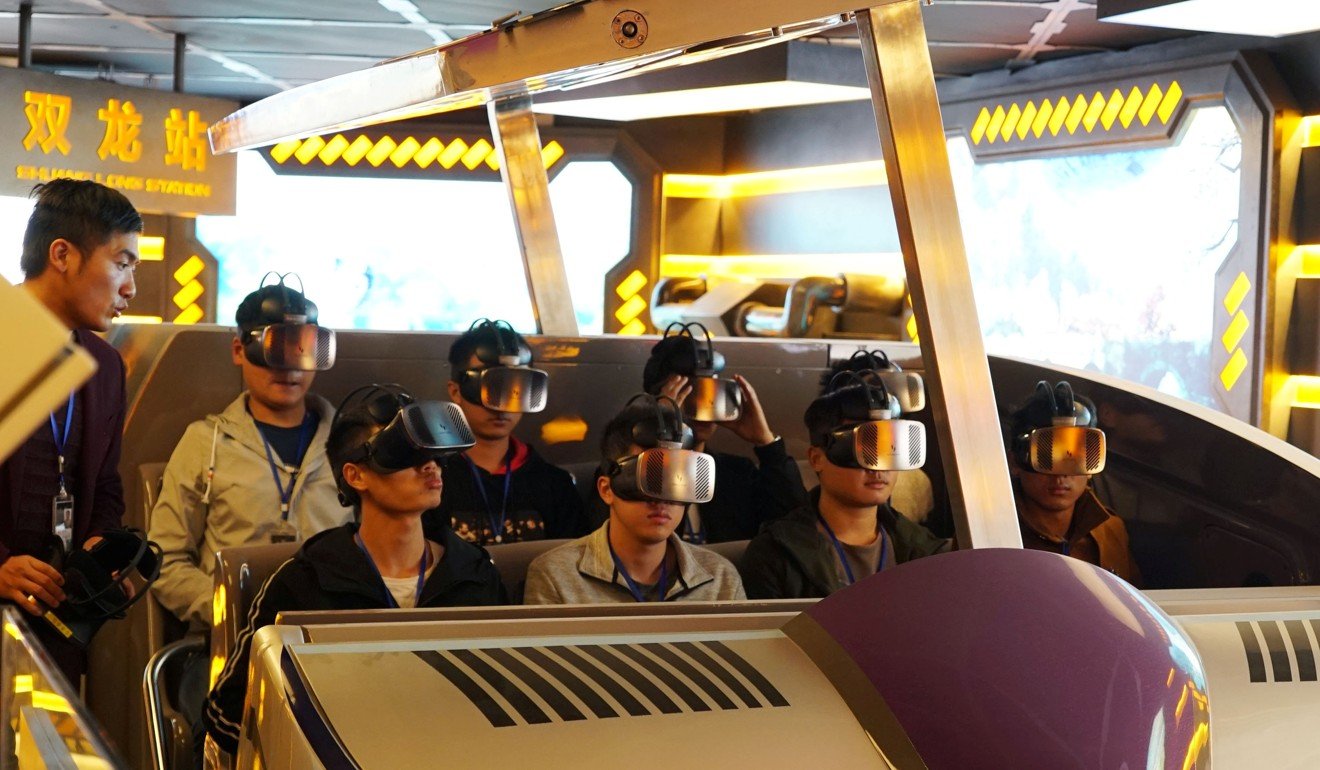
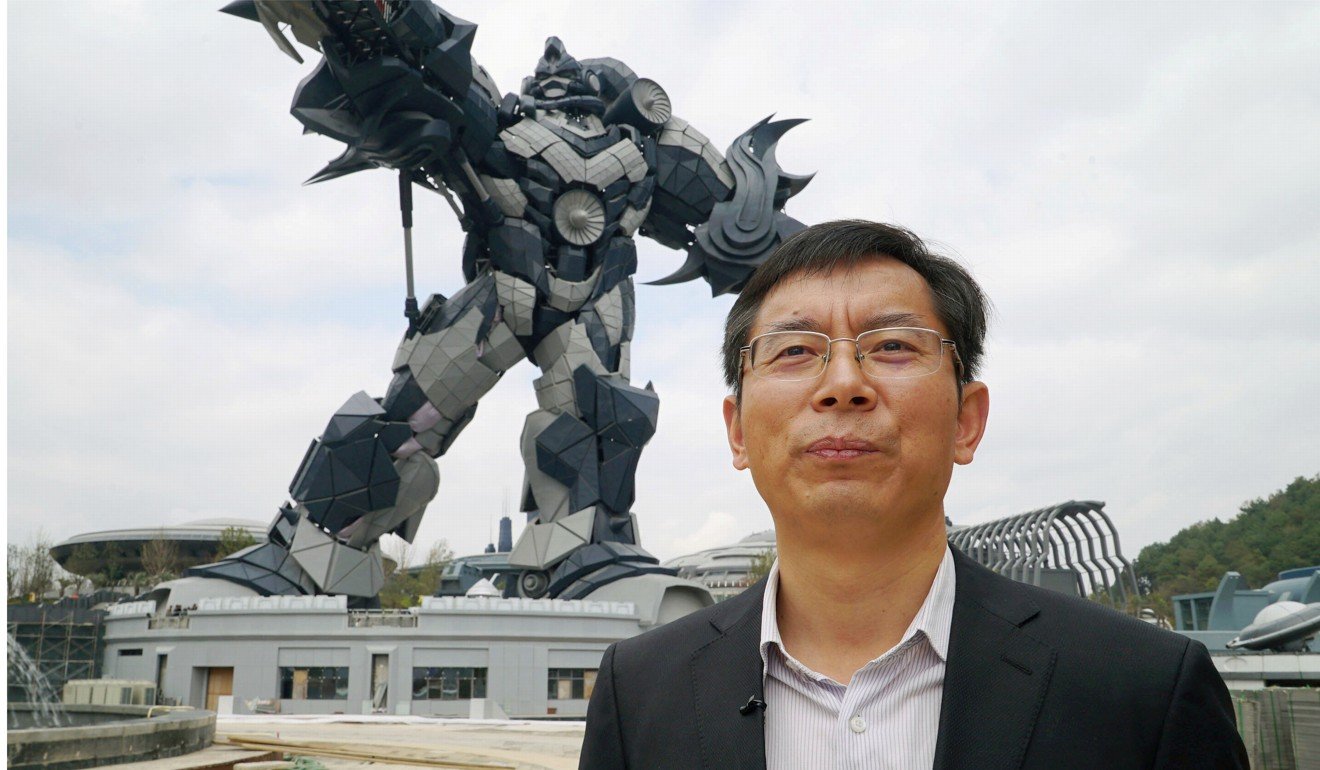
“This is an innovative attraction, because it’s just different,” he says.
Microsoft wants to put virtual reality in your home for only US$399
The US$1.5 billion Oriental Science Fiction Valley park, part of which is scheduled to open next February, is part of China’s plan to develop new drivers of growth centred on trends such as gaming, sports and cutting-edge technology, to cut reliance on traditional industries.
Guizhou is luring firms such as Apple, which has sited its China data centre there, while the world’s largest radio telescope is in nearby Pingtang county.
The park is touted as the first of its kind, although virtual-reality-based attractions from the United States to Japan already draw interest from consumers and video gamers.
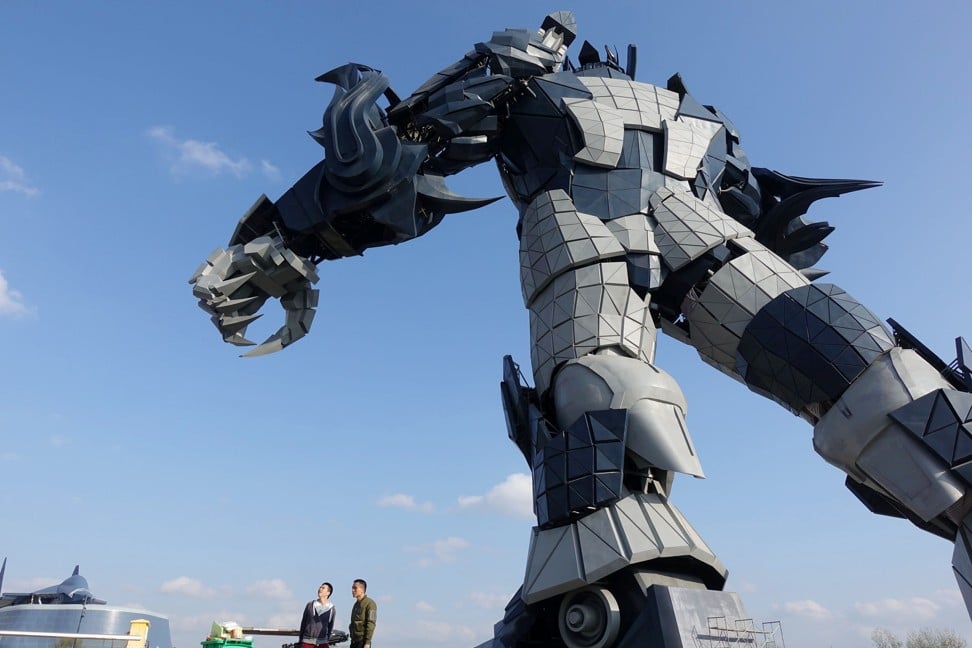
“You feel like you’re really there,” says Qu Zhongjie, the park’s manager of rides. “That’s our main feature.”
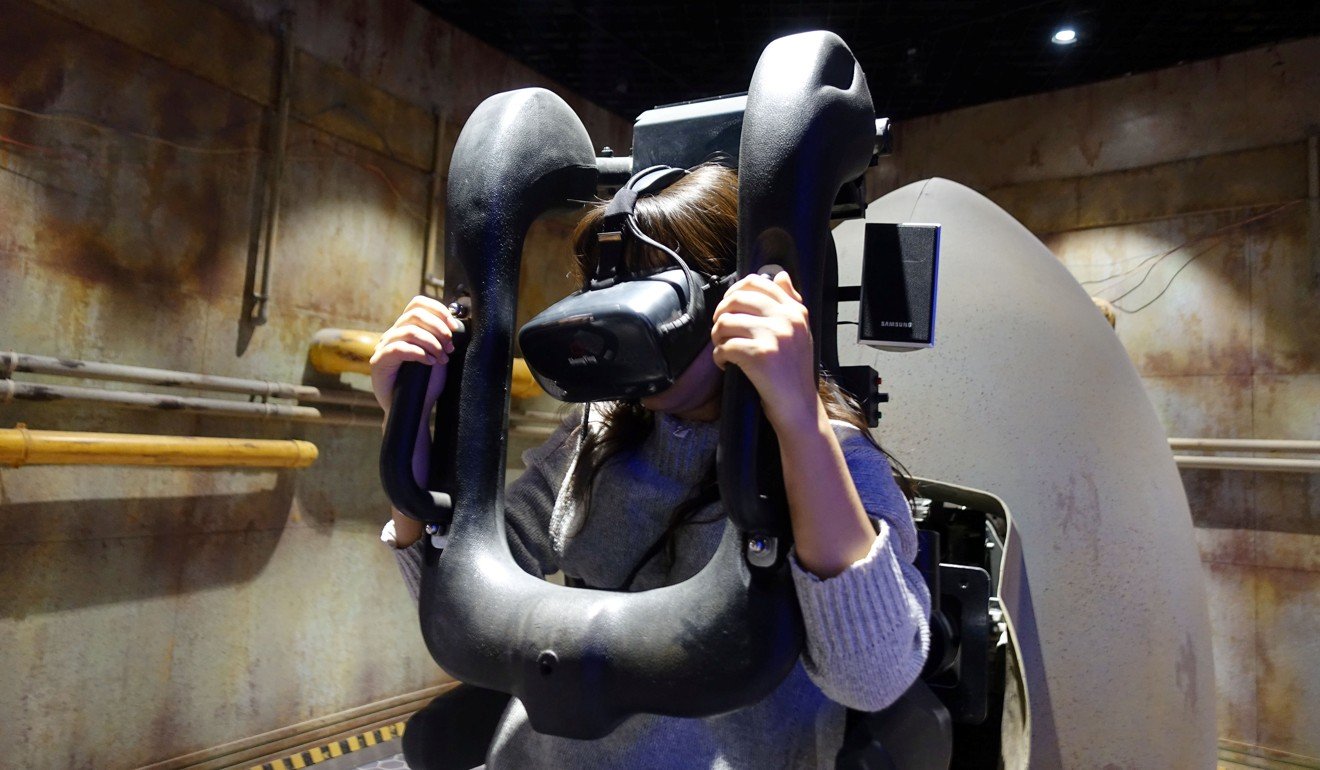
Robots, VR and AR dominate the third Consumer Electronics Show Asia in Shanghai
“There are lots of good things that come out of these projects,” says one farmer, Liu Guangjun. “As for virtual reality, I don’t really understand it.”

